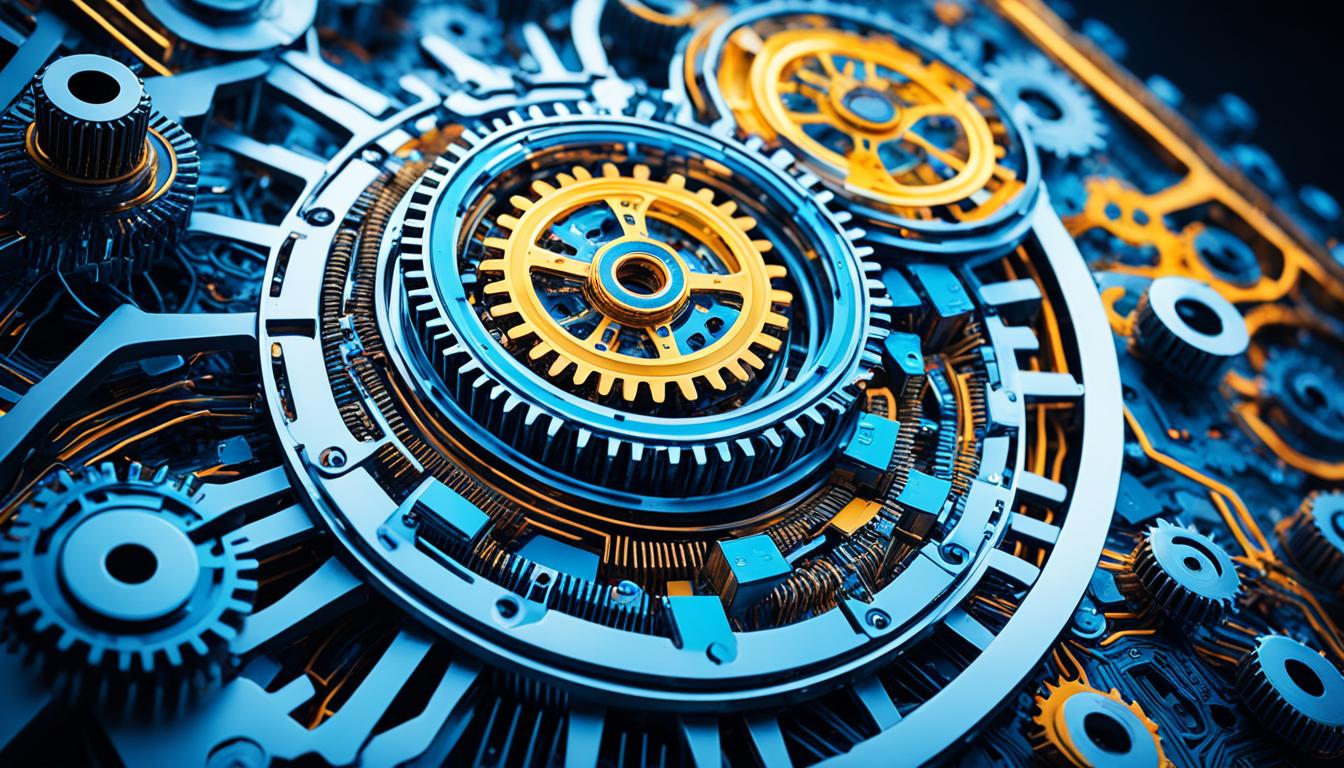
In today's fast-paced business world, the AI revolution is not just a buzzword but a powerful force reshaping various sectors.
artificial intelligence technology is evident in its many applications, from enhancing customer experiences to revolutionizing healthcare diagnostics. Companies of all sizes leverage AI to drive data-centric strategies, personalize customer interactions, and automate repetitive tasks. These cognitive computing solutions offer a significant competitive edge, making businesses not only smarter and faster but also more customer-focused. The rapid advancements in the AI industry ensure it's a pivotal tool for modern business innovation and efficiency.
Key Takeaways
- The AI revolution is profoundly transforming multiple industries.
- Artificial intelligence technology serves various roles, from customer service to healthcare diagnostics.
- Businesses, whether large or small, are harnessing AI for data-driven strategies and automation.
- AI provides a competitive edge by enabling smarter, faster, and customer-centric approaches.
- Cognitive computing solutions are essential for innovative and efficient business operations.
- The AI industry's rapid advancements illustrate its importance in today's business landscape.
The Power of AI in Today's Business Landscape
Artificial Intelligence (AI) has demonstrated its transformative potential across various industries, acting as a cornerstone for modern innovation. By leveraging machine learning algorithms, businesses can analyze vast amounts of data to make informed decisions quickly and efficiently. This application goes beyond simplifying tasks; it fundamentally changes how organizations operate.
In my experience, one of the most notable advancements is the use of neural network applications to automate complex processes, allowing human resources to focus on more intricate problem-solving activities. As AI continues to evolve, deep learning advancements have further enabled businesses to tackle challenges that were previously insurmountable.
Benefits of AI in Business
The integration of AI-driven business innovations offers numerous benefits. Not only does it aid in automating mundane tasks, but it also helps to interpret data, which can be used to enhance business strategies. By utilizing machine learning algorithms, companies can predict market trends, optimize supply chains, and personalize customer experiences.
Moreover, automation in businesses has led to significant cost savings and improved efficiency. These advantages are not limited to large enterprises; small to mid-sized businesses can also leverage AI technologies to stay competitive in today's fast-paced market.
AI-Driven Business Innovations
AI-driven business innovations are transforming various sectors. In healthcare, predictive diagnostics help in early disease detection and treatment. AI chatbots are providing 24/7 customer support, improving responsiveness and customer satisfaction. In finance, AI influences critical decisions related to investments and risk management, ensuring both accuracy and speed.
AI's versatility allows for its seamless integration into diverse business processes, driving both innovation and efficiency.
These innovations are a testament to the immense potential AI holds. Whether it's enhancing supply chains through neural network applications or streamlining operations via automation in businesses, AI continues to pave the way for a more dynamic and productive business environment.
AI-Powered Customer Support
In the ever-evolving landscape of customer service, implementing AI models has emerged as a game-changer. These modern systems bolster customer service solutions, turning traditional interactions into efficient and gratifying experiences.

24/7 Availability with AI Chatbots
A standout feature of AI models in customer support is the ability to provide 24/7 chatbots. With these AI-powered assistants, businesses can offer round-the-clock service, significantly reducing wait times. This ensures that customers receive immediate responses to their inquiries, making the entire interaction seamless and efficient.
Enhanced Customer Experiences
Beyond availability, AI models are designed to deliver enhanced customer experiences. By mastering the intricacies of handling customer inquiries, they provide personalized solutions that foster customer loyalty. Leveraging advanced AI customer service solutions, companies can align their support strategies with the ever-evolving expectations of modern consumers, ensuring a competitive edge in the market.
AI in Personalized Shopping
Artificial intelligence technology has profoundly changed how we shop, creating personalized shopping experiences that feel tailor-made for each customer. AI interprets vast amounts of data to provide insights into individual preferences and habits, enabling brands to offer products and suggestions that resonate uniquely with each consumer.
Understanding Customer Preferences
The key to achieving such personalization lies in customer preference analysis. By examining purchasing behavior, search history, and even social media activity, AI can predict what you'll like and recommend it before you even know you want it. This creates a seamless and intuitive shopping journey where your preferences are not just met but anticipated.
Improving Customer Loyalty
One of the most significant advantages of AI-driven personalization in retail is its ability to bolster customer loyalty. When customers feel understood and valued, they are more likely to return and engage with the brand. As AI continues to evolve, the depth of personalization will only increase, cultivating deeper connections and fostering a dedicated customer base.
Integrating artificial intelligence technology into retail not only refines the shopping experience but also ensures that brands remain competitive in an ever-evolving market. The future of shopping is here, and it’s more personalized than ever.
Predictive Maintenance with AI
The landscape of maintenance is being revolutionized by predictive maintenance with AI. By utilizing advanced machine learning algorithms, AI can forecast equipment failures before they materialize. This not only preempts disruptions but also ensures that businesses can address potential issues proactively.
This predictive capability is not confined to traditional industries. In the AI industry, sectors such as healthcare are leveraging AI for early diagnosis, mitigating risks before they escalate. For instance, manufacturing and transportation industries are seeing enhanced operational continuity through such proactive measures. Predictive maintenance is, therefore, a game-changer in retaining flawless operational workflows across varied sectors.
One of the fascinating aspects of predictive maintenance is its applicability beyond industrial environments. For medical equipment, it's pivotal in enabling timely interventions and ensuring equipment uptime, which leads to better patient outcomes.
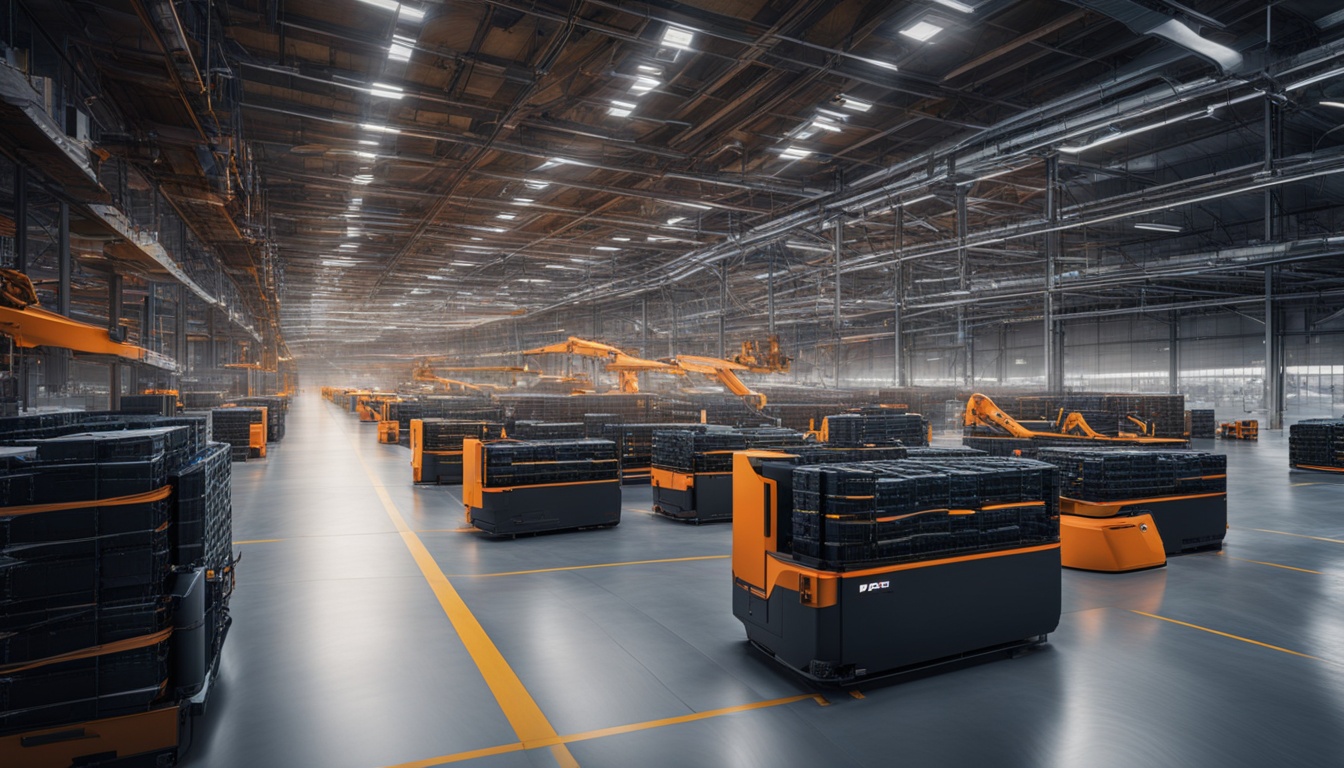
The optimal integration of automation in businesses with AI-driven maintenance solutions ensures decreased downtime, significant cost savings, and heightened efficiency. The following table delineates the key benefits:
| Benefit | Description |
|---|---|
| Reduced Downtime | Predict equipment issues in advance to mitigate interruptions |
| Cost Efficiency | Lower repair costs by addressing issues early |
| Operational Continuity | Maintain seamless workflows in critical sectors |
| Enhanced Safety | Proactive intervention prevents hazardous situations |
Through AI industry advancements, predictive maintenance exemplifies how automation in businesses is modernizing conventional approaches, paving the way for a future where disruptions are minimized, and efficiency is maximized. This fusion of AI with maintenance strategies illustrates the dynamic scope of the machine learning algorithms in driving industry-wide transformation.
AI in Healthcare Diagnostics
Artificial intelligence technology has paved the way for groundbreaking advancements in medical diagnostics, enhancing accuracy and efficiency in unparalleled ways. The integration of AI in healthcare diagnostics marks a significant shift in the medical field, poised to deliver faster diagnoses and improved patient outcomes.
Faster and Accurate Diagnoses
One of the hallmarks of AI in healthcare diagnostics is the ability to provide faster diagnoses. By leveraging AI-driven image interpretation, healthcare professionals can accurately identify diseases at earlier stages, which is crucial for timely treatment. These advancements not only expedite the diagnostic process but also reduce the potential for human error, ensuring more reliable results.
Virtual Health Assistants
In addition to faster diagnoses, virtual health assistants powered by artificial intelligence technology have evolved to offer substantial support to both patients and healthcare providers. These AI-driven tools provide daily assistance, helping patients manage their health by offering reminders, answering medical queries, and monitoring vital signs. This approach encapsulates a more patient-centric model that prioritizes constant care and support.
The influence of virtual health assistants extends to chronic disease management and routine follow-ups, making healthcare more accessible and personalized. By implementing AI in this capacity, the healthcare industry continues to move towards a more efficient, patient-focused model. The future of healthcare looks promising with AI, as it brings about faster diagnoses and improved patient support systems.
Streamlining Supply Chains with AI
AI models are revolutionizing the way businesses approach supply chain management. By integrating advanced neural network applications and cognitive computing solutions, companies can achieve streamlined supply chains that are more efficient and effective.
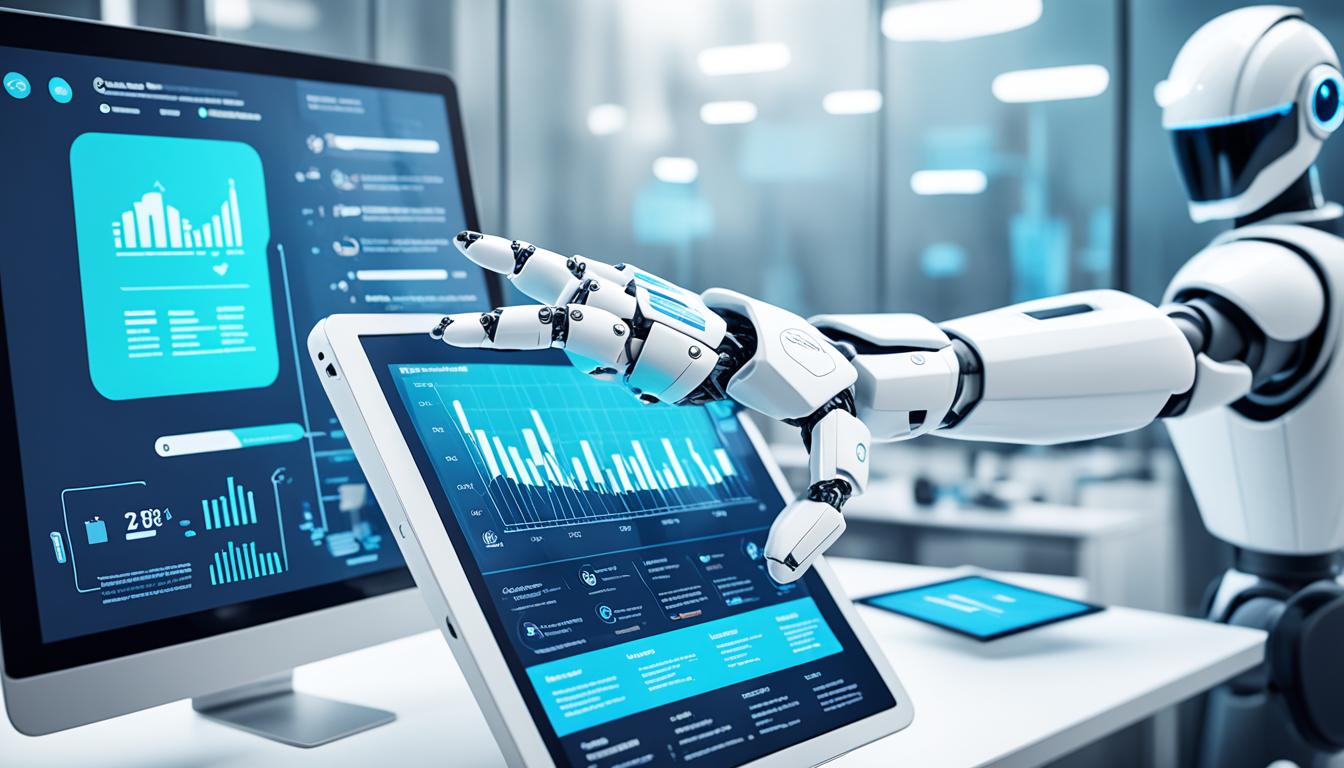
One of the key benefits of utilizing AI in supply chains is the ability to leverage predictive analytics for inventory management. These AI models can analyze vast amounts of data to forecast demand with greater accuracy, ensuring that inventory levels are optimized and reducing instances of overstocking or stockouts. Consequently, businesses experience cost savings and improved customer satisfaction.
Moreover, AI-driven logistic optimization leads to more efficient transportation and distribution routes. By dynamically adjusting to real-time data, neural network applications can identify the most efficient paths for delivery, cutting down on transit times and fuel consumption.
Sustainability is another critical advantage offered by AI in supply chains. Predictive demand forecasting and logistic optimization contribute to reduced waste and lower carbon footprints, aligning with corporate sustainability goals and enhancing the company’s environmental responsibility.
“By leveraging predictive analytics and cognitive computing solutions, businesses can not only boost their supply chain efficiency but also champion sustainability initiatives.”
Here’s a detailed breakdown of how AI impacts various facets of supply chain management:
| Aspect | AI Impact |
|---|---|
| Inventory Management | Optimized levels, reduced costs |
| Logistics | Efficient routes, lower fuel consumption |
| Sustainability | Reduced waste, lower carbon footprint |
Overall, the transformative role of AI models in creating streamlined supply chains underscores the significant strides made in this area. The use of cognitive computing solutions and neural network applications ensures not only operational efficiency but also a stronger commitment to sustainability, benefiting both businesses and the environment.
AI Models Enhancing Financial Decisions
Advancements in artificial intelligence technology are driving significant improvements in the realm of financial decision-making. By harnessing the power of neural networks and deep learning advancements, businesses can now analyze vast amounts of market data with unprecedented accuracy. This has transformed how we predict investment returns and identify market trends.
One of the most impressive aspects of this evolution is the ability of AI models to identify potential financial risks. This capability not only safeguards assets but also optimizes investment strategies, ensuring more secure financial operations.
| AI Benefit | Description |
|---|---|
| Enhanced Predictions | AI models improve the accuracy of market trend forecasts. |
| Risk Identification | Deep learning advancements help in identifying potential financial risks. |
| Optimized Strategies | Businesses can optimize their investment strategies using AI-powered financial decisions. |
It's fascinating how these tools not only analyze data but also facilitate more nuanced and informed decision-making processes. This intersection of technology and finance heralds a new era of precision and strategic planning for modern businesses.
AI-Powered Self-Driving Cars
The transportation industry is on the cusp of a revolution with the advent of AI-powered self-driving cars. These innovations promise not only enhanced safety and efficiency but also the potential to significantly reduce accidents caused by human error. The future of transportation leans heavily on these autonomous vehicles, suggesting a safer, cleaner, and more efficient mode of travel.
Safety and Efficiency in Transportation
AI-powered self-driving cars are designed to prioritize safety in transportation. They come equipped with sophisticated sensors and machine learning algorithms that enable them to detect and respond to potential hazards more swiftly than a human driver. This capability not only minimizes the risk of accidents but also optimizes fuel efficiency and traffic flow, contributing to a more sustainable environment.
The Future of Autonomous Vehicles
The future of autonomous vehicles holds great promise as the AI revolution continues to advance. Developers and tech giants are investing heavily in this field, aiming to perfect the technology. With progressive enhancements, autonomous vehicles could soon become a common sight on our roadways, ushering in an era where transportation is seamless, interconnected, and drastically safer.
AI in Automated Marketing Campaigns
AI in marketing is radically changing how businesses execute their strategies. In particular, automated marketing campaigns are a game-changer, allowing companies to streamline processes and enhance precision. By leveraging artificial intelligence technology, brands can now tailor their content and target specific audiences with unmatched accuracy.
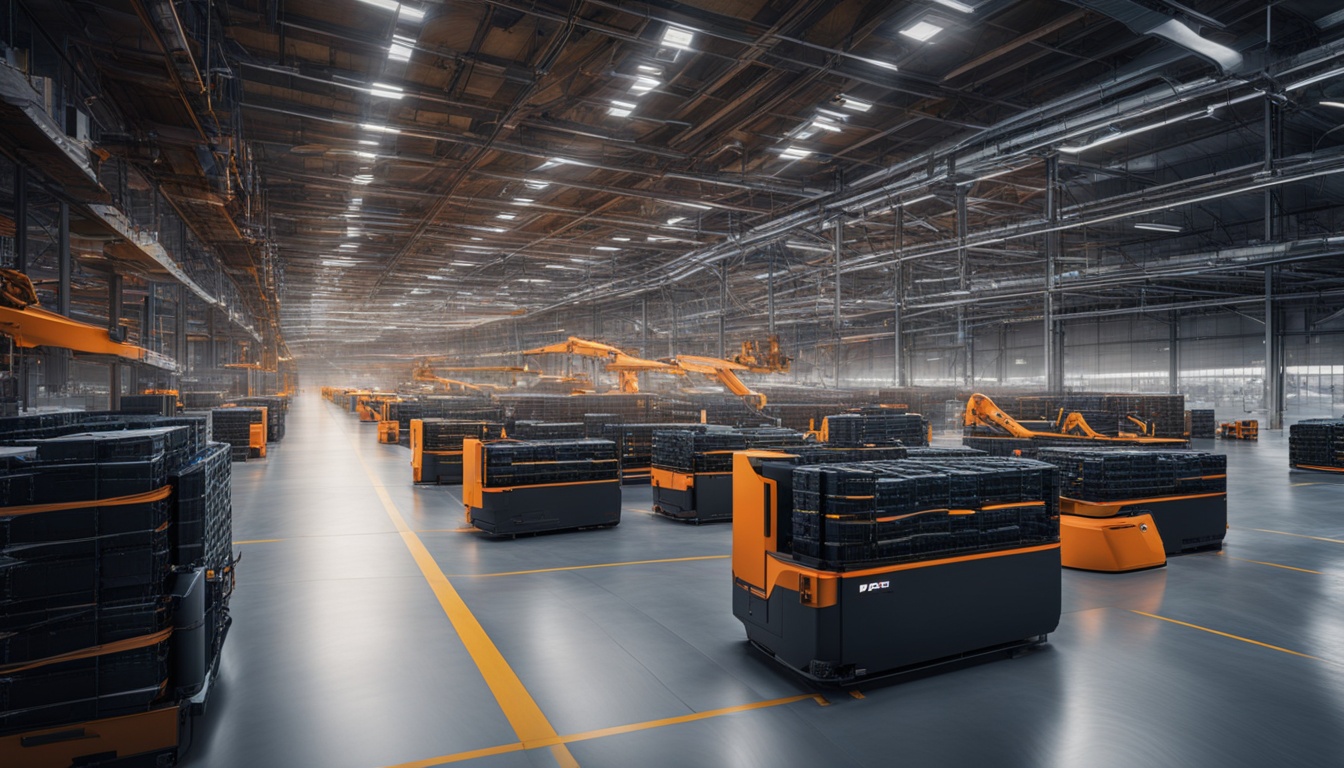
Machine learning algorithms are central to these advancements. They analyze immense volumes of customer data, recognizing patterns and predicting future behaviors. This enables marketers to craft customized campaigns that resonate deeply with their audience, driving engagement and conversion rates higher than ever before.
Here’s a closer look at how AI-powered automated marketing campaigns benefit different aspects of business operations:
| Aspect | Benefits |
|---|---|
| Content Creation | Enhanced creativity and personalized messages. |
| Audience Targeting | Precision targeting based on detailed analytics. |
| Campaign Management | Automated processes save time and reduce errors. |
| Customer Insights | In-depth analysis of customer behavior and preferences. |
The future of marketing is undoubtedly intertwined with artificial intelligence technology. As machine learning algorithms continue to evolve, businesses can expect even more sophisticated tools to connect with their audience and drive effective marketing strategies.
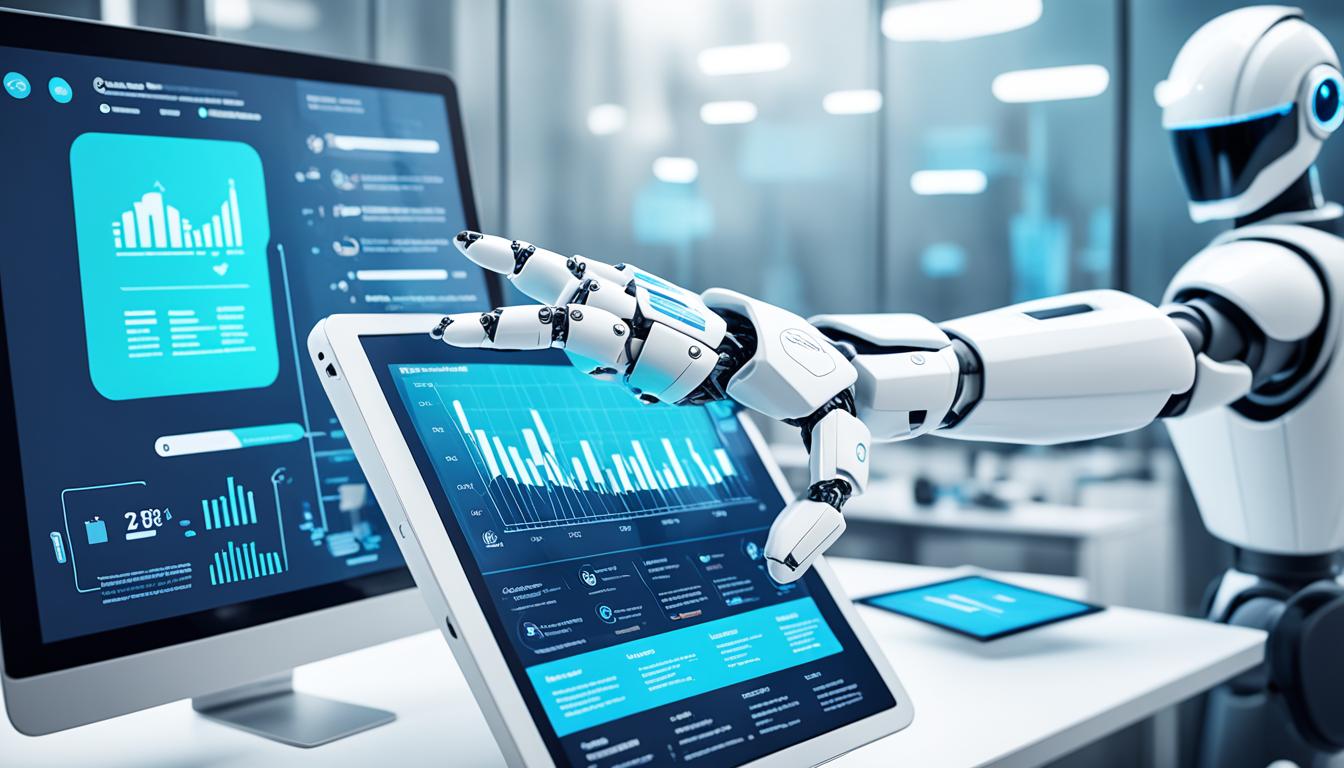
AI Models in Enhanced Cybersecurity
In an era where cyber threats are becoming increasingly sophisticated, businesses are turning to AI models to bolster their defenses. The deployment of AI in cybersecurity has revolutionized threat management, enabling companies to stay ahead of potential risks.
Identifying and Preventing Threats
AI models excel at threat identification by analyzing vast amounts of data and recognizing unusual patterns that may indicate security breaches. With machine learning, these systems improve over time, accurately predicting potential threats and implementing measures to prevent unauthorized access. This real-time monitoring and analysis ensure that even the most subtle signs of intrusion are detected swiftly.
Proactive Security Measures
The integration of AI in cybersecurity empowers businesses to adopt proactive security solutions. By continuously monitoring networks and systems, AI can detect anomalies and initiate defensive actions before a threat fully manifests. These proactive security measures not only prevent data breaches but also mitigate potential damage, ensuring the integrity of digital assets.
As cybersecurity continues to evolve, the role of AI models will undoubtedly expand, offering enhanced cybersecurity solutions that are more adaptive and resilient against emerging threats.
Conclusion
As I reflect on the vast landscape of the AI revolution, I’m struck by its profound impact across diverse industries. The AI industry has seen remarkable advancements, particularly in deep learning and neural network applications. These advancements have propelled businesses towards unprecedented levels of efficiency, safety, and personalization, setting new benchmarks for innovation and competitive advantage.
The multifaceted applications of AI models—from enhancing customer support with AI chatbots to enabling predictive maintenance—underscore the transformative potential of artificial intelligence technology. It's fascinating to witness how AI-driven customer support solutions are constantly evolving, meeting the demands of a modern, digital-first consumer base. Similarly, AI's role in healthcare diagnostics exemplifies how neural network applications are leading to faster, more accurate diagnoses, ultimately improving patient outcomes.
Looking forward, the continuous evolution of the AI industry promises even greater integration into our daily lives. Smarter marketing campaigns, enhanced cybersecurity measures, and the advent of autonomous vehicles are just a few areas where AI will continue to make significant strides. As these technologies develop, I’m excited to see how they will reshape the way we live and conduct business, fostering a future marked by smarter, more responsive technologies.
FAQ
How is the AI revolution impacting the business industry?
The AI revolution is significantly impacting the business industry by enhancing operational efficiency, personalizing customer experiences, and driving innovation. AI models interpret vast amounts of data, enabling smarter decision-making and automating repetitive tasks, thus freeing human resources for more complex activities. This results in businesses becoming more agile, competitive, and customer-centric.
What benefits does AI bring to businesses?
AI brings numerous benefits to businesses, including improved decision-making through data analysis, increased efficiency via automation of repetitive tasks, personalized customer interactions, predictive maintenance, and enhanced cybersecurity defenses. Machine learning algorithms and cognitive computing solutions further drive these benefits, leading to more innovative and efficient business practices.
How do AI chatbots enhance customer support?
AI chatbots enhance customer support by offering 24/7 availability, handling inquiries instantly, and reducing wait times. These AI-powered assistants can provide accurate solutions and facilitate seamless customer experiences, which helps improve customer satisfaction and loyalty.
In what ways has AI transformed personalized shopping?
AI has transformed personalized shopping by analyzing customer data to understand preferences and generate tailor-made recommendations. This level of personalization enhances the overall shopping experience, boosts customer loyalty, and fosters a stronger connection between brands and their consumers.
What is predictive maintenance and how does AI contribute to it?
Predictive maintenance involves using AI to predict equipment failures before they occur, allowing businesses to undertake proactive maintenance. AI uses machine learning algorithms to analyze data and identify potential issues, which helps prevent downtime and optimize maintenance schedules.
How does AI improve healthcare diagnostics?
AI improves healthcare diagnostics by enabling faster and more accurate diagnoses through advanced image interpretation and data analysis. AI-driven diagnostic tools assist clinicians in providing superior patient care, while virtual health assistants offer daily support and personalized health advice to patients.
What role does AI play in streamlining supply chains?
AI streamlines supply chains by utilizing predictive analytics for inventory management and logistic optimization. This results in increased efficiency, reduced waste, and more accurate demand forecasting, benefiting both businesses and the environment.
How do AI models enhance financial decision-making?
AI models enhance financial decision-making by analyzing market data with deep learning advancements and neural network applications. They improve prediction accuracy concerning investment returns, market trends, and potential financial risks, thus safeguarding assets and optimizing investment strategies.
What are the benefits of AI-powered self-driving cars in transportation?
AI-powered self-driving cars offer numerous benefits, including enhanced safety through reduced human error, increased efficiency, and the potential for cleaner and more sustainable travel. These autonomous vehicles represent the future of transportation, promising a significant transformation in how we commute.
In what ways has AI transformed automated marketing campaigns?
AI has transformed automated marketing campaigns by optimizing content creation, targeting, and personalization. Machine learning algorithms analyze customer interactions and predict behaviors, translating this data into actionable marketing insights that improve engagement and effectiveness.
How does AI improve cybersecurity?
AI improves cybersecurity by identifying and preventing threats in real-time. AI models analyze patterns, detect anomalies, and initiate preventative actions, often before breaches occur. These proactive security measures continuously learn and adapt to new threats, providing robust protection for digital assets.

 Best AI Image Generator, Image Generate Models - Create Visual Art
Best AI Image Generator, Image Generate Models - Create Visual Art